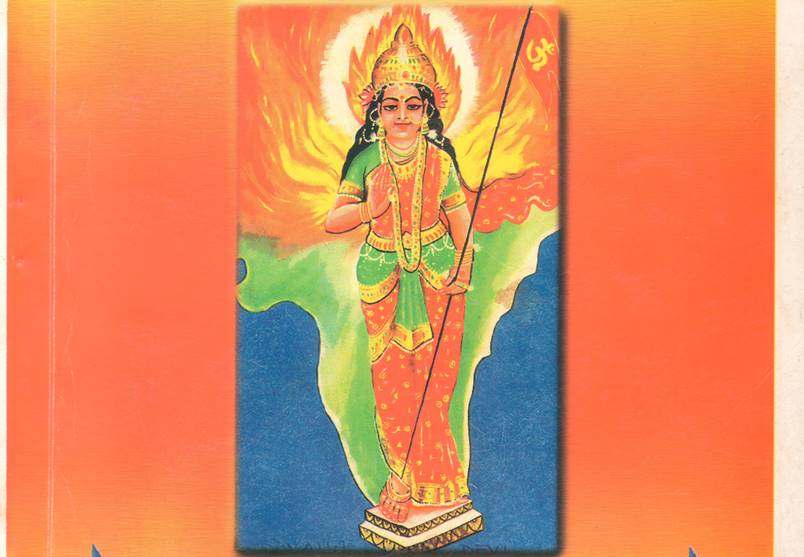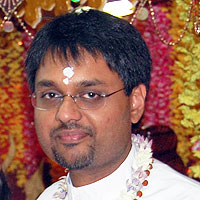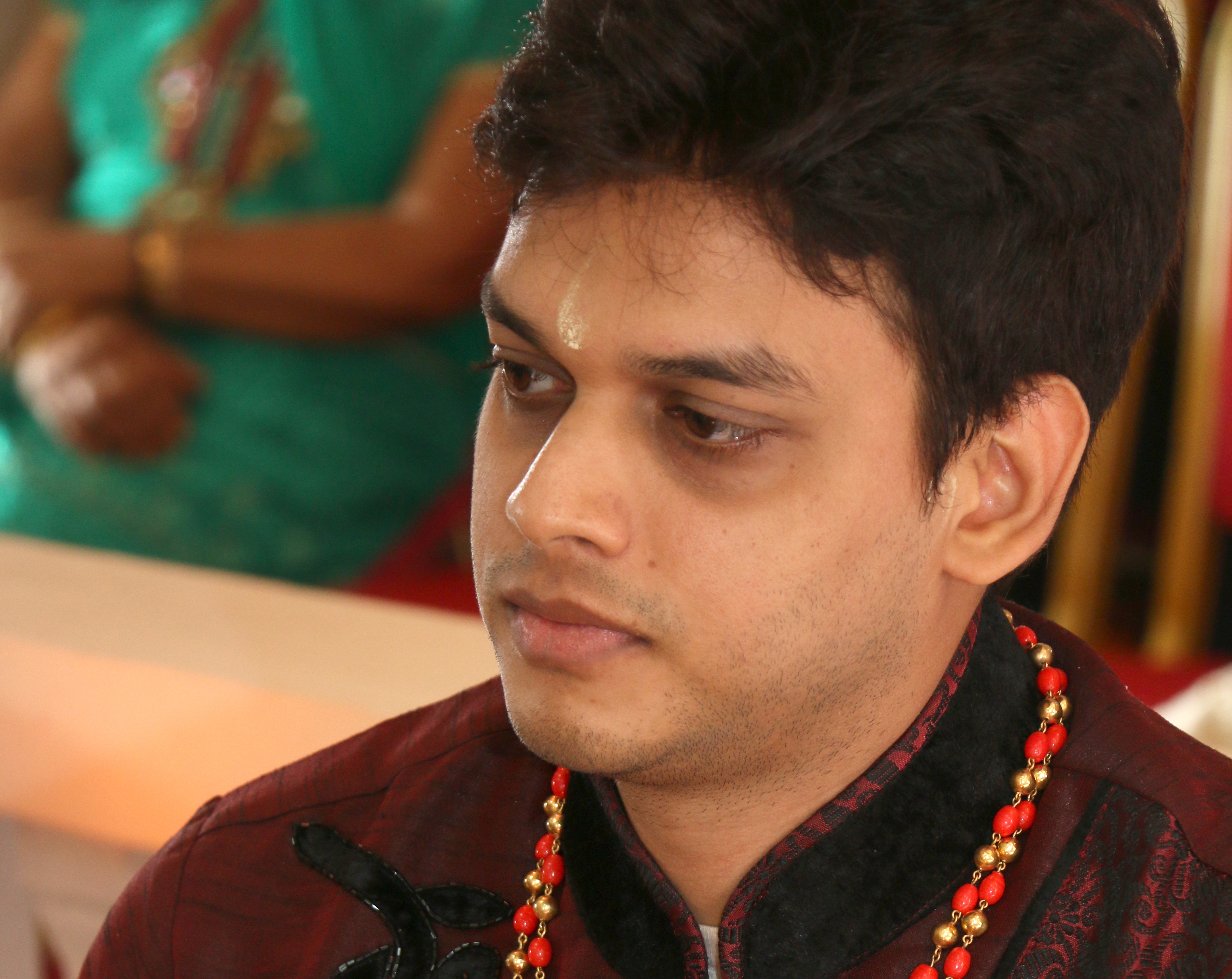From a discourse by Pt. Balram Persad
Just as Lord Ganesh is worshipped by every type of Hindu, whether you believe in Vishnu Bhagwan, Shiva Bhagwan or Durga Ma, so too, every Hindu at some point in time, in some ceremony, must worship Swaha Devi. She is worshipped by offering ingredients into the sacred fire, while reciting mantras and ending them with “Swaha”.
The Devi Bhagwat offers more insight into the origins of Swaha Devi. The embodiments of the Divine, the Devtas, were once unhappy. This might seem strange as the Devtas are the ones who bless us. So, if they’re not happy, how could they bless us? How could the sacrificial puja be successful? So, why were they not happy? It was not because man was not praying, or that man was not kindling the sacrificial fire, or that man was not reciting mantras. However, even though they performed these actions, devotees were not saying “Swaha” at the end of every mantra. They would say, “Om Shree Ganeshaya” or “Om namah Shivaya” and offer the guggul into the fire. To understand this further, if I put the address on an envelope but there is no stamp, will it reach the person to whom I’m sending it? So, in this context, devotees were chanting mantras and making offerings without using the word, “Swaha”, and these were not reaching the Devtas.
When you have a concern, you don’t live with it. Instead you try to have it addressed and you go where you know help will be forthcoming. So the Devtas went to Lord Bramha, the Creator and said, “Oh Lord, we’re not getting any sustenance.” The deeper meaning is that the yagya is the universal or cosmic form of God, as described in the Bhagavad Gita, and the fire represents the universal mouth. So, Lord Bramha went into meditation. From our perspective, devotees, you have to connect to that source from which we all came. Lord Bramha meditated on Lord Krishna. In turn, Bhagwan Krishna began meditating upon the Divine Mother. From the body of the Divine Mother, an all-powerful Devi appeared. She was very beautiful, of a blue colour, and this Devi was called Swaha. She looked at them with a gracious smile on her face, prepared to help.
Lord Bramha said, “O Devi, your name is Swaha, and you represent the burning power of fire. At the conclusion of every mantra, when devotees say your name and offer oblations into the sacred fire, these oblations will reach the Devtas. O Mother, you are the consort of Agin Devta. May you be worshipped in all regions, of Gods, men and other beings.” Furthermore, he said those who pronounce this mantra, “Swaha”, will get success in their actions.
The Importance of Fire
There are several spheres of existence. In space or Antariksh, Vayu, the wind, dwells. The wind is the principle of life or praan; we are living because we are breathing. In the sky, Surujnarayan Swami, the sun, dwells, which is the principle of the intellect. In the constellations, the nakshatra, there dwells Soma or the moon. The moon represents immortality as well as the mind. Everything in the universe is related to the body; what is inside is outside. Humans are a microcosm of the macrocosm, that is, the five elements outside us are also within us. So, humans must live in harmony with nature because humans are a part of nature.
Lastly, Prithivi is the Earth, on which dwells agni, the fire principle that represents the digestion of food. Fire has been one of human’s greatest inventions in the areas of science, technology, spirituality and others. It is a witness of all our important occasions: the fire is lit when one in the marriage ceremony, at funerals or when performing a havan or puja.
According to our scriptures, there are ten types of fires, five are natural and five are ritualistic: agni – the actual fire, the lightning, the sun, the fire of digestion which supports life, the fire of destruction as well as Brahm Agni – the sacrificial fire that we light in yagyas and pujas; Prajaapati Agni – fire given to the unmarried student, the brahmachari; Garhapatya Agni – after marriage, the fire that is brought into the house as a reminder of the pledge made to serve each other; Dakshin Agni – the fire of offerings to the pitris or ancestors and Kravyaadi Agni – the funeral fire.
The Power of Agin Devta
It is said that if there are negative vibrations in the home, such as quarrelling among relatives, one should perform havan and let the smoke permeate the environment. Over time, this will transform the vibrations. This is the power of mantra, of Agin Devta and Swaha Mata.
Further, the fire is a purifier; before devotions, one lights the fire, bows to it and inhales the smoke to purify the mind, heart, body and intellect. Sage Vaalmiki tells Shree Raam that if he wishes to find a place to reside, he should reside in the hearts of such people.



